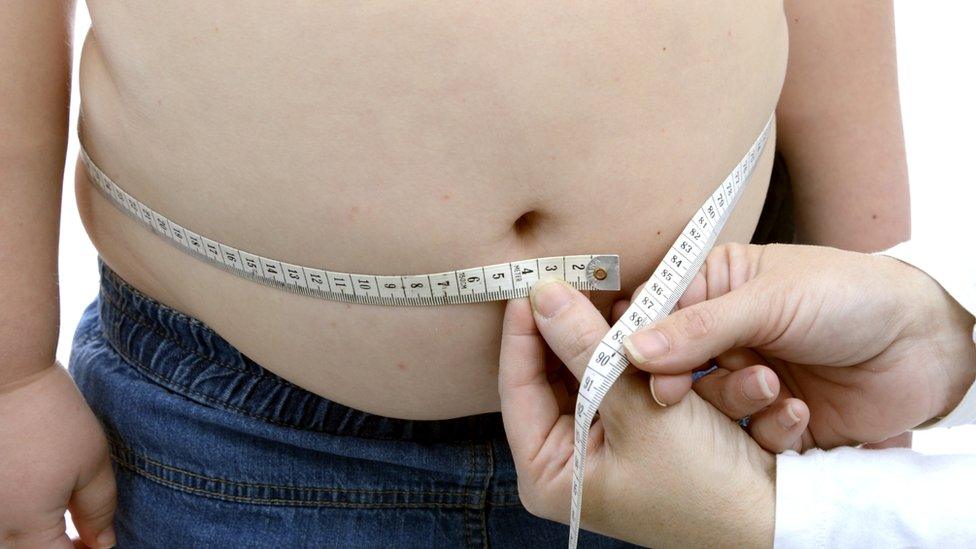Obesity plan – step in the right direction or missed opportunity?
- Published

Should the government have done more to combat childhood obesity?
Much of the response to the government's childhood obesity plan for England has been critical.
Even one of the big supermarket chains has suggested it does not go far enough.
One senior health source, though, made the point that if a year ago the government has said it would introduce a sugar levy and a product reformulation plan there would have been a positive reaction from campaigners.
It has to be said that one campaigning charity, the National Children's Bureau, argued that "now, at last, we have a plan for reducing obesity early in life".
Critical voices
But the overwhelming view of health think tanks, medical leaders, local government and charities is that the published plan is a missed opportunity.
They have noted what is not in the document, especially the proposals by Public Health England covering restrictions on TV advertising of unhealthy foods and curbs on supermarket cut-price promotions.
It's not often that a business calls for more regulation in its sector - but that's precisely what Sainsbury's has done.
Mike Coupe, chief executive of the supermarket chain, says there should be a tougher regime including compulsory targets for sugar and mandatory traffic light labelling.
Expert advice
The government plan involves a voluntary 20% sugar reduction scheme over four years.
Leading retailers, it seems, would rather have a regulatory level playing field than comply with a voluntary scheme which some competitors might be less scrupulous about.
The government argument is that the plan to get manufacturers to reduce sugar content in food and drink products is significant.
The Treasury Minister, Jane Ellison, said on the BBC's Today programme that the plan might sound technical but it was an important step.
"It's not as iconic, for example, as talking about everyday things that everyone understands around advertising but it is nonetheless the thing that every expert, not just in this country but around the world, recommends as the most effective," she said.
But it's a voluntary scheme, monitored by Public Health England with progress reports every six months.
The penalties for non-compliance are not clear.
The document simply states: "If there has not been sufficient progress by 2020 we will use other levers to achieve the same aims."
More activity
Ministers are anxious to highlight the promotion of physical activity in schools in the package of measures, though it was made clear at the time of the Budget that the proceeds of the sugar levy would be used on funding school sport.
Currently, primary schools in England are required to provide two hours of PE a week.
This will be extended to 30 minutes a day of PE and "active play".
Media speculation that the plan involved OFSTED ratings of school sports provision, though, proved inaccurate.
Perhaps the most damning criticism of the plan has come from Sarah Wollaston, chair of the Commons Health Select Committee and a Conservative MP.
In a BBC 5 live interview she took a swipe at the prime minister, referring to her speech on the steps of Downing Street about inequality in society.
Wollaston said: "If you say you're going to tackle the burning injustices of health and inequality then you shouldn't, as the first litmus test of that, put the interests of advertising and marketers ahead of the interests of children". Ouch!
Theresa May has taken her own judgement on the appropriate balance between government and voluntary action.
She seems to have taken the view that the sugar levy is a big enough piece of state intervention in itself.
But she will have to defend the obesity plan when parliament resumes and rebut the wide range of criticism, including on her own benches, in the Commons.